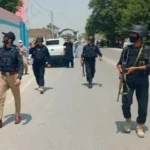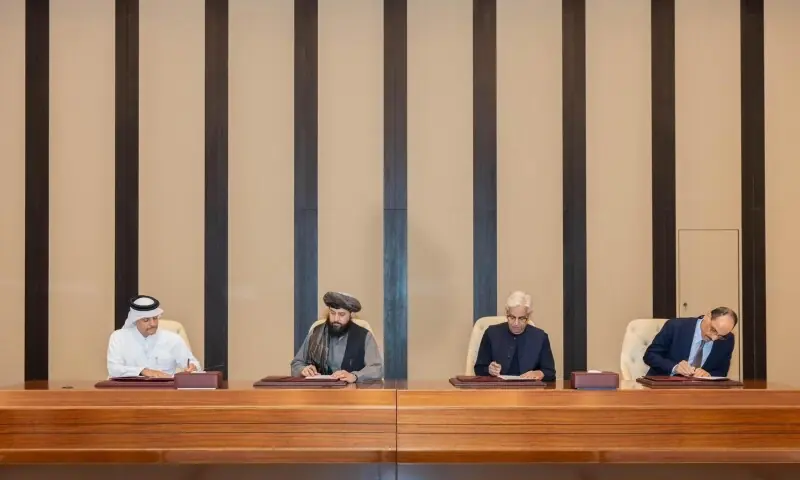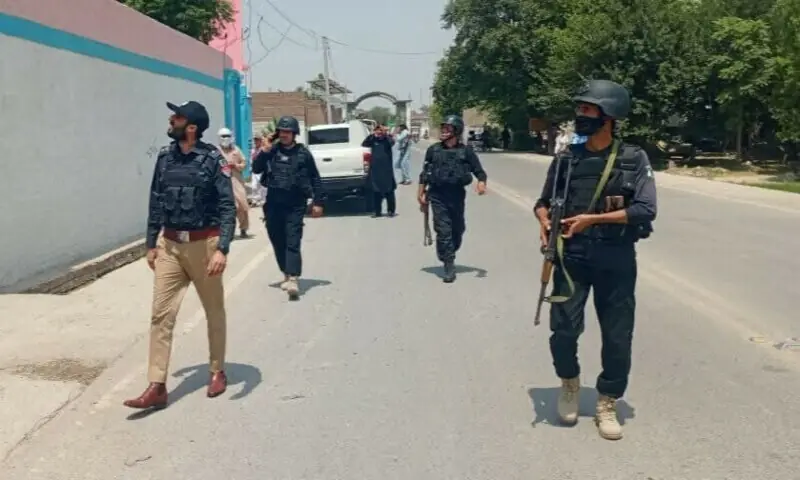Pakistan and Afghanistan agreed to an immediate ceasefire following high-level talks in Doha, where both countries pledged to respect each other’s sovereignty and are expected to meet again on October 25 to further discuss the issues, Defense Minister Khawaja Asif said on Sunday.
Amid rising tensions along the Pakistan-Afghanistan border, a high-level Pakistani delegation led by Asif traveled to Doha on Saturday for talks with Afghan Taliban officials, aiming to end cross-border hostilities and address Pakistan’s security concerns. Facilitated by Qatar, the talks came after days of clashes and Pakistani attacks on Gul Bahadur group camps in Afghanistan, after a 48-hour ceasefire was extended to allow negotiations.
In a post on
“We are sincerely grateful to the two brother countries, Qatar and Turkiye,” the minister said.
Previously, a post on account X of PTV Newsciting the Ministry of Foreign Affairs of Qatar, also confirmed this news.
“During the talks, both countries not only agreed to an immediate ceasefire but also decided to establish a permanent mechanism for bilateral peace and stability,” the post said.
The publication further noted that both countries will hold follow-up meetings in the coming days to ensure the implementation and sustained continuity of the ceasefire.
“These measures will prove beneficial in promoting security and stability in both Pakistan and Afghanistan,” he said.
According to the publication, the negotiations, organized by the State of Qatar with Turkiye acting as mediator, continued for 13 hours.
On Saturday, as talks between the two sides were underway, Pakistan reiterated that it was not seeking escalation. However, he urged the Afghan Taliban authorities to fulfill their commitments to the international community and address Pakistan’s legitimate security concerns by taking verifiable measures against terrorist entities, according to a statement by the Ministry of Foreign Affairs (FO).
“Pakistan appreciates Qatar’s mediation efforts and hopes that these discussions will contribute to peace and stability in the region,” he added.
Cross-border climbing
On the night of October 11, Afghan forces launched an unprovoked attack on Pakistani border posts, sparking a series of clashes that left 23 Pakistani soldiers martyred and more than 200 Taliban and affiliated militants dead, according to the military’s media wing, Inter-Services Public Relations (ISPR).
The Pakistani military responded with precision strikes inside Afghanistan’s Kandahar province and Kabul, targeting militant camps and border positions, while urging Kabul to act against terrorist groups operating from its soil.
Afghanistan claimed it carried out the border attack as a “retaliation” measure, accusing Islamabad of carrying out airstrikes on its territory last Thursday, an allegation Islamabad has neither confirmed nor denied.
Clashes broke out again on Tuesday (October 14), with the Afghan Taliban and Fitna al Khawarij exchanging fire with Pakistani troops at the Kurram border. Pakistan followed this on Wednesday by launching “precision strikes” in Afghanistan’s Kandahar province and Kabul.
Fitna al Khawarij is a term the state uses to refer to terrorists affiliated with the banned Tehreek-i-Taliban Pakistan (TTP).
The FO announced on Wednesday that a temporary ceasefire had been agreed with Afghanistan for the next 48 hours amid recent border hostilities. The ceasefire was extended later on Friday, according to a senior diplomatic source.
Furthermore, Pakistan again attacked terrorist hideouts in Afghanistan on the same day. Incidents were reported in Angoor Adda region and Afghan Urgun and Barmal districts of Paktika province while attacks were carried out on hideouts of the banned group Hafiz Gul Bahadur.
The attacks came on the heels of a daring gun and bomb attack on a military facility in North Waziristan, and just hours after Islamabad and Kabul extended a two-day ceasefire.
Deteriorating ties
Relations between Islamabad and Kabul have remained tense since 2023, with Pakistan repeatedly expressing concern over the use of Afghan soil by militants carrying out cross-border attacks. The security situation has further deteriorated in Khyber Pakhtunkhwa and Balochistan following the outlawed TTP’s decision to end its ceasefire with Islamabad in November 2022.
While the two sides have attempted to maintain dialogue from time to time, tensions have persisted. Kabul, although insisting that it does not allow its territory to be used against any country, continues to face criticism from Islamabad as TTP-led attacks in Pakistan continue.









